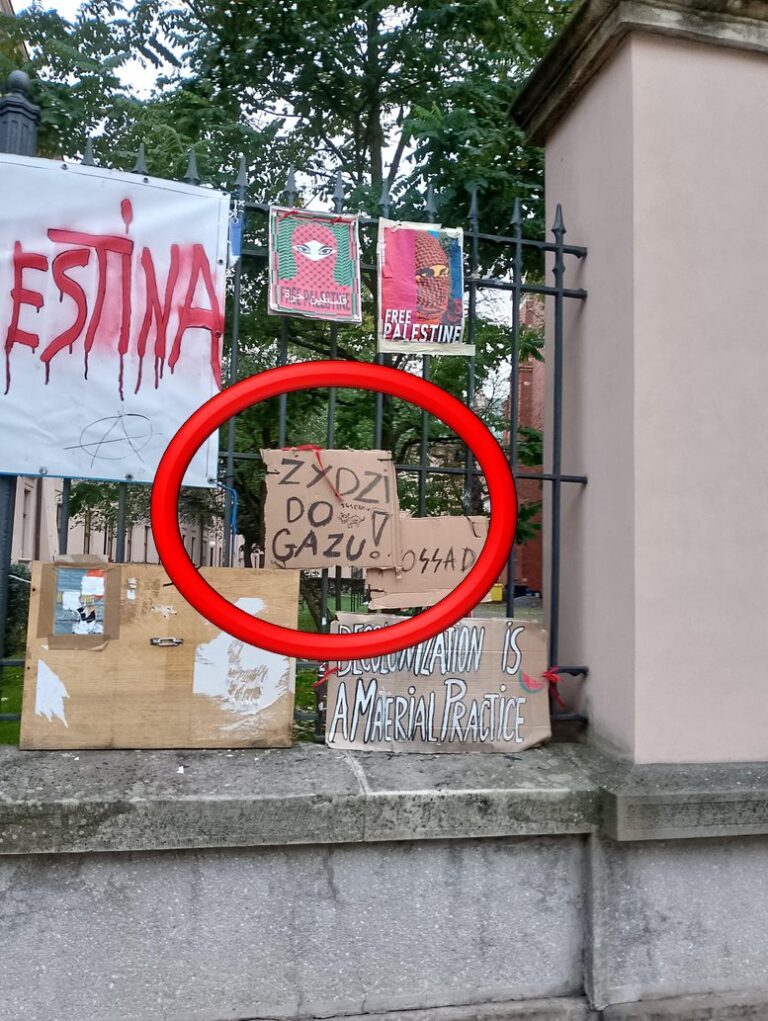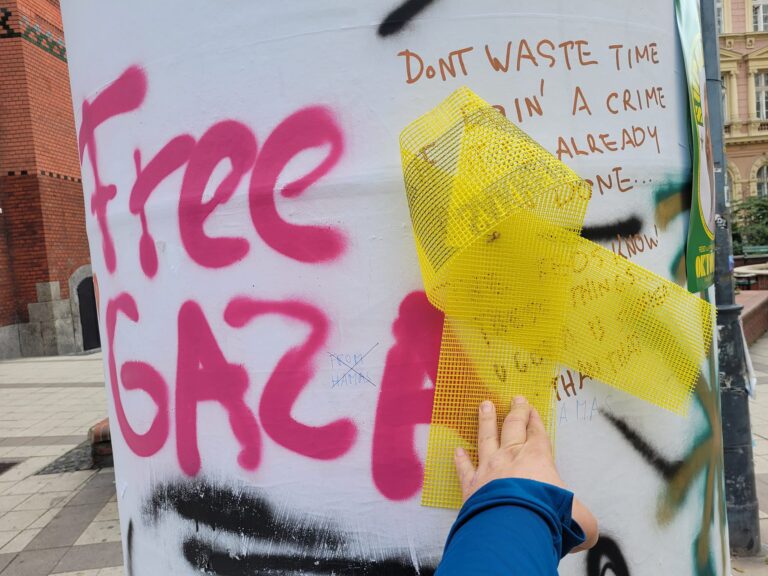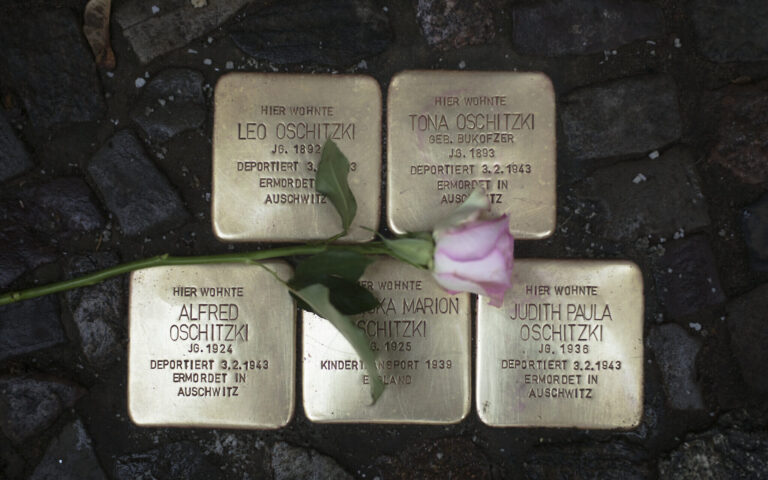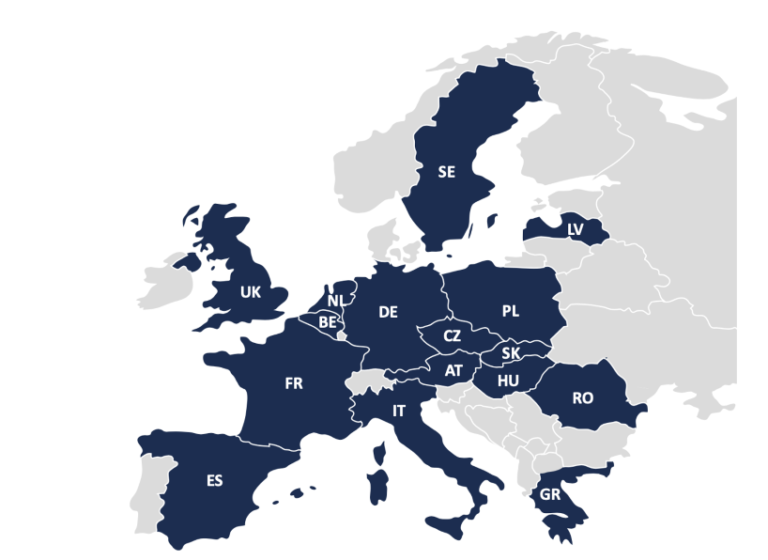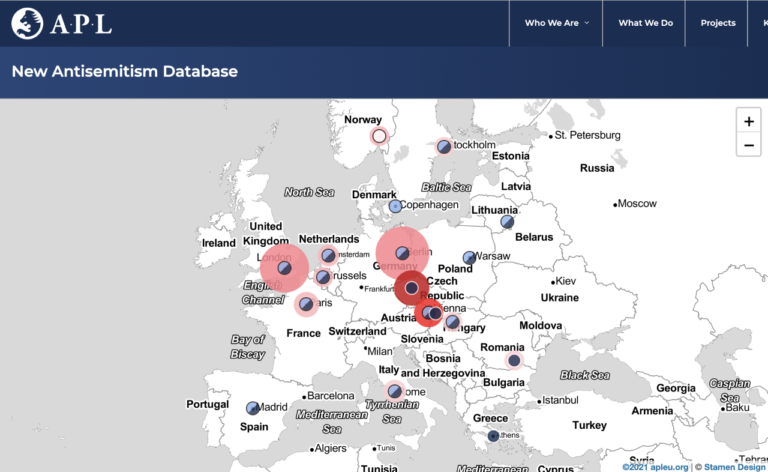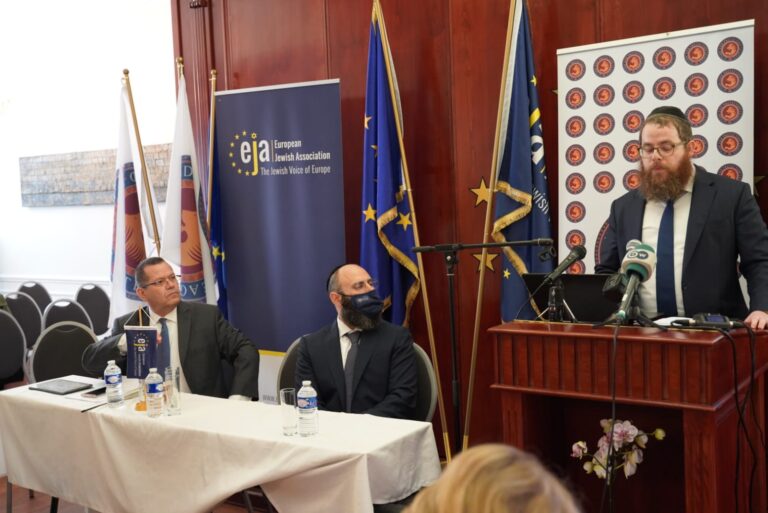In February 2023, the B’nai B’rith International and the Amadeu Antonio Foundation concluded their report titled ‘On Europe’s Streets: Annual Marches Glorifying Nazism ‘.
With the support of the German Federal Foreign Office, the B’nai B’rith International and the Amadeu Antonio Foundation released a one-of-a-kind report on annual marches glorifying Nazism, which are a particular threat to European values and stand in striking opposition to the European Union’s founding principles. The common thread of these marches is antisemitism, as well as antisemitic conspiracy theories, denial and distortion of the Holocaust and the glorification of Nazi war criminals and their collaborators. Such events are symbolic of a particularly dangerous form of hatred, which can adapt to the grey areas of European legal frameworks in a highly volatile manner and, therefore, easily remain unchallenged.
Established far-right marches occurring annually pose a particular threat since their recurring nature and „brand recognition” result in a higher mobilisation potential and make them particularly attractive as international networking events. One of the most crucial elements of the report catalogues cross-border networking among far-right groups. The entries of this report reveal that marches glorifying Nazism and fascism are an organised pan-European phenomenon and provide a platform to form alliances under a pan-European far-right identity. As such, they constitute one of the main avenues of right-wing extremist mobilisation. These are catalysts for both the ongoing radicalisation and the strategic networking of the far-right movement – nationally and internationally. These marches offer extremists the opportunity to increase their outreach and improve their skills under the guise of alleged commemorative or recreational activities.
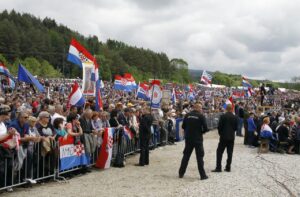
The report catalogues 12 major marches and meetings that glorify Nazism and/or fascism that have taken place annually across the European Union in recent years, namely the Day of Honour in Hungary, the Memorial March for the Bombing of Dresden in Germany, the Lukov March in Bulgaria, the Blue Division March in Spain, the Remembrance Day of the Latvian Legionnaires in Latvia, the Bleiburg Meeting in Austria, the Rudolf Hess Memorial March in Germany, the Iron Wake in Belgium, the March on Rome in Italy, the Independence March in Poland, the Kohti vapautta and 612-march in Finland and the Imia March in Greece.
The report provides insight into the structural nature of these marches, detailing the 1. name, 2. location, 3. date, 4. context, themes, slogans, 5. persistence, 6. organisers, 7. the number of participants, 8. spectrum and topics of participants, 9. European networking, 10. potential for violence/violent incidents, 11. antisemitism and Holocaust denial, 12. civil society response, and 13. the reaction by the authorities/bans.
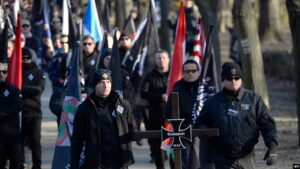
The second part of the report provides a legal analysis addressing the key aspects by which to analyse and address the phenomenon of marches glorifying Nazism and/or fascism. It reviews the relevant case law of the European Court of Human Rights and highlights existing instruments to combat this persistent problem. This part also highlights that in many cases of these the marches detailed in the first part, which still persist with impunity, it is with the acquiescence or active participation of those charged with the responsibility to take action against them.
Part III of the report offers policy recommendations to strengthen responses to these marches, with regard to law enforcement, as well as building civil society resilience against hateful ideologies. While in some instances, these marches have faced laudable resistance from state authorities, on many occasions, the resistance is not systematic and consistent, with significant gaps in enforcement. A troubling fact is that whenever complaints concerning antisemitic incitement or Holocaust denial at the marches have been brought to the attention of the judicial authorities, these have been dismissed by prosecutors and judges, sometimes without due consideration. These decisions show that there is significant work ahead to raise awareness among the judiciary regarding the effective implementation of legislation on hate speech and memory laws.
The source of this article is the report itself.
